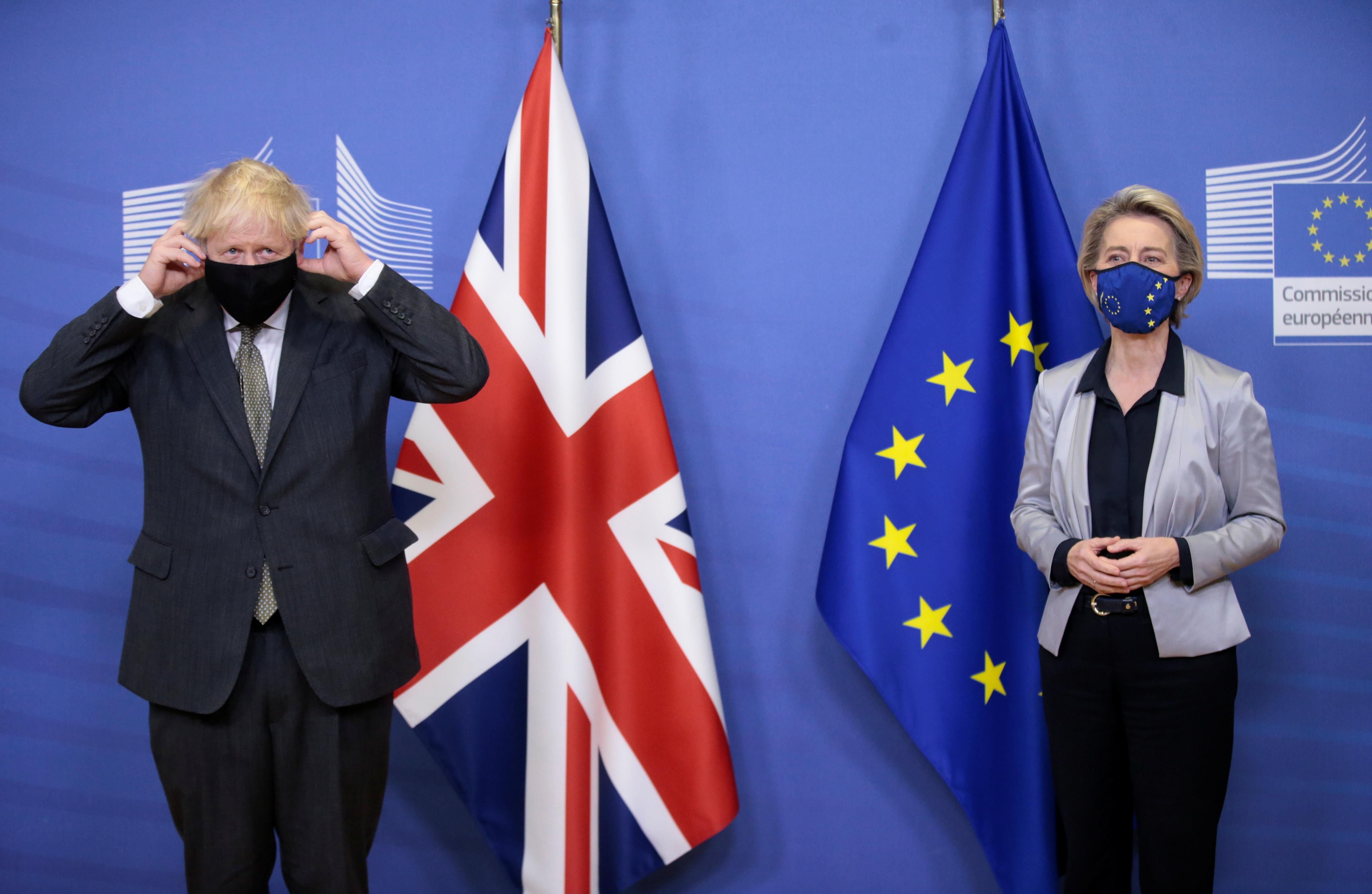News
December 10, 2020
Is the EU playing it safe or prolonging the agony? With Brexit talks still deadlocked in the 11th hour (and in the 11th month, at that) the European Union is taking no chances. Brussels on Thursday unveiled an emergency plan that aims to keep UK-EU trade and travel moving even in the event of the dreaded "no deal" scenario in which there's no agreement at all governing nearly $1 trillion in cross-Channel annual trade. The EU's contingency plan would require UK consent, and cover travel by air and road, shipping, and fishing for six months. Talks between London and Brussels are still stuck on a few key points — including regulatory rules and fishing rights — and technically the two sides need to reach a deal in the next few days or the clock runs out. But does the EU's plan, which would provide cover into early next year, now undercut the urgency of reaching a deal? Having a safety net is obviously a smart idea, but listen, Boris and Ursula, we can't take any more of this. We really, really can't.
Western Sahara shake-up: President Trump announced Thursday that the US had successfully brokered another détente between Israel and a former Arab foe as part of the Abraham Accords, this time with the Kingdom of Morocco. The two states once enjoyed solid diplomatic relations; however, ties were severed in 2000 amid the bloody Second Intifada between Israelis and Palestinians. So, what does each camp gain from this normalization deal? For the Israelis, it's yet another success in gaining formal recognition from prominent players in the Arab world, helping to boost its security and economic prospects in the region. It also helps Israel create a united bulwark against Iran, a mutual foe. For the Trump administration, the deal presents an opportunity to boast of another foreign policy triumph on its way out the door. But the biggest winner is Morocco: in exchange for agreeing to establish ties with Israel, the US reversed decades of foreign policy by ignoring a long-standing UN resolution and formally recognizing Moroccan control over the contested Western Sahara, where violence recently flared between Moroccan forces and Sahrawi nomads from the Polisario Front liberation movement who have long been fighting for independence on territory claimed by Rabat. This shake-up comes as the Western Sahara is already plagued by instability and violence.
Lebanon's PM charged with negligence: Lebanon's former Prime Minister Hassan Diab, along with three veteran ministers, has been charged with negligence over the Beirut port explosion back in August that killed over 200 people, injured 6,000, and caused far-reaching damage to the capital. Diab, whose government resigned after the disaster but has served in a caretaker capacity in recent months, says that his "conscious is clean:" The former PM says that he was made aware of the explosives (nearly 3,000 tons of material) at the port in June, but that his response was hampered by inconsistent and poor warnings from relevant government agencies. Diab's camp has made clear that it will not cooperate with the courts, saying that the matter should have been handled by parliament, which has a specialized court system for trialing top government officials. To date, 37 people are being prosecuted for the devastating blast that worsened Lebanon's longtime economic and political crises.
More For You
An employee works on the beverage production line to meet the Spring Festival market demand at Leyuan Health Technology (Huzhou) Co., Ltd. on January 27, 2026 in Huzhou, Zhejiang Province of China.
Photo by Wang Shucheng/VCG
For China, hitting its annual growth target is as much a political victory as an economic one. It is proof that Beijing can weather slowing global demand, a slumping housing sector, and mounting pressure from Washington.
Most Popular
Two Iranian motorcyclists stop in front of the burned East Tehran General Directorate of Tax Affairs headquarters in Tehran, Iran, on January 21, 2026.
Photo by Morteza Nikoubazl/NurPhoto
30,000: The estimated death toll in Iran during the protests at the start of the year, per local health officials, underscoring the scale of the Islamic Republic’s crackdown on its own citizens.
The World Health Organization (WHO) headquarters is seen in Geneva, Switzerland, January 28, 2025.
REUTERS/Denis Balibouse
Seventy-eight years after helping found the World Health Organization (WHO), the United States has formally withdrawn from the agency, following through on a pledge President Donald Trump made on his first day back in office.
Mastercard Economic Institute's Outlook 2026 explores the forces redefining global business. Tariffs, technology, and transformation define an adaptive economy for the year ahead. Expect moderate growth amid easing inflation, evolving fiscal policies, and rapid AI adoption, driving productivity. Digital transformation for SMEs and shifts in trade and consumer behavior will shape strategies worldwide. Stay ahead with insights to help navigate complexity and seize emerging opportunities. Learn more here.
© 2025 GZERO Media. All Rights Reserved | A Eurasia Group media company.
